| Glasgow Digital Library | RED CLYDESIDE | PEOPLE | EVENTS | GROUPS | LITERATURE | INDEX |
|---|

The purpose of the government's dilution policy was to increase productivity and output of munitions by importing into engineering and shipbuilding works unskilled male and female workers. However, the skilled workers in the factories and shipyards were concerned that this would open the door for employers to exploit the Act by substituting cheap labour for time-served skilled workers. The situation was aggravated at shop-floor level by the schism between the rank-and-file shop stewards (initially via the Labour Withholding Committee, which then became an organisation called the Clyde Workers' Committee - CWC) and trade union officials. The CWC no longer trusted moderate trade union officials to protect workers' interests in discussions with the Dilution Commission.
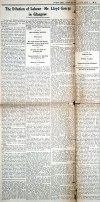
In December 1915 the prime minister, David Lloyd-George, visited Glasgow to address a meeting of workers and shop stewards in St. Andrews Halls. He hoped to explain the government's proposals for dilution and in the process allay the fears of the skilled workers. However, Lloyd-George was given a hostile reception by the audience of workers and struggled to be heard above the jeers of the crowd. An official account of this meeting, written by government officials, was passed to the national press and published. However this account failed to mention both the workers' opposition to dilution and the hostile reception received by the prime minister.
The newspaper Forward published the true account of proceedings at the meeting and was immediately suppressed by the government. Also suppressed were two other socialist publications: John Maclean's Vanguard and the CWC's own paper The Worker, which reproduced and published the original Forward article.
In the engineering industry on Clydeside the CWC were increasingly usurping the power of both local and national ASE (Amalgamated Society of Engineers) officials, and they sought to negotiate implementation of dilution into the factories with the Dilution Commission, in preference to allowing the official trade union body to do so. The CWC was directed by shop stewards in the main engineering workshops in Glasgow. Unlike the local ASE officials, the shop stewards of the CWC were also political activists, alive to the possibility of advancing syndicalist policies amongst the workers. Their aim was to implement a more radical policy of dilution which would secure workers' control of industry.
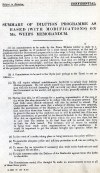
Implementation of the government's dilution policy on Clydeside began in January 1916, by which time the CWC directed the workers of 29 Clydeside engineering works. However, the Dilution Commission refused to recognise the authority of the CWC to negotiate implementation of policy and declined their offer to meet to discuss their proposals for implementation. On 14 March 1916, David Kirkwood, in his capacity as shop stewards' convener at Beardmores in Parkhead, Glasgow, was denied access to new female dilutees. Management at the factory advised Kirkwood that any further attempt at interference would lead not only to his own dismissal but also that of other CWC shop stewards in the factory. Access to new employees was seen as a fundamental right by the shop stewards, and in protest at management's revocation of this right the shop stewards at Beardmores went on strike on 17 March 1916. By 21 March 21 workers at three other munitions factories in Glasgow had gone on strike in sympathy with the shop stewards at Beardmores.
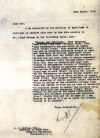
The government and the dilution commissioners were becoming increasingly nervous about events on Clydeside, fearing that the syndicalist inspired CWC were orchestrating a plan to impede the production of munitions. On 24 March 1916 the government deported Kirkwood and three other Beardmores shop stewards under the Defence of the Realm Act Regulation 14. On 28 March three more shop stewards from Weir's (one of the factories were workers were on strike in sympathy with the Beardmores workers) were also deported. Those deported were sent to Edinburgh where they had to report to the police three times daily. They returned to Glasgow on the 14 June 1917 when restrictions were lifted.

The deported shop stewards were effectively abandoned by their own union, the ASE, and were refused union benefit on deportation. The deportations broke opposition to the implementation of dilution in the engineering industries on Clydeside, and also signalled the demise of the CWC and its loss of influence within Clydeside trade unionism for the duration of the war.
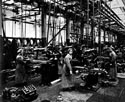
The implementation of dilution on Clydeside began in earnest after the deportation of the CWC leaders and women from all walks of life were employed in the production of munitions. The military's insatiable demand for shells and armaments meant that production of munitions was required 24 hours a day 7 days a week, usually covering 2 or 3 shift patterns. In order to give working class dilutees a measure of rest, usually at weekends, the government appealed for middle class women to fill the gaps at factories to ensure production did not fall behind.
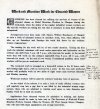
Women filled many jobs brought into existence by wartime needs. As a result the number of women employed increased from 3,224,600 in July, 1914 to 4,814,600 in January 1918. Nearly 200,000 women were employed in government departments. Half a million became clerical workers in private offices. Women worked as conductors on trams and buses and over a quarter of a million women worked on the land.
The greatest increase of women workers was in engineering. Over 700,000 of these women worked in the highly dangerous munitions industry. Industries that had previously excluded women now welcomed them. There was a particular demand for women to do heavy work such as unloading coal, stoking furnaces and building ships.
| Glasgow Digital Library | RED CLYDESIDE | PEOPLE | EVENTS | GROUPS | LITERATURE | INDEX |
|---|